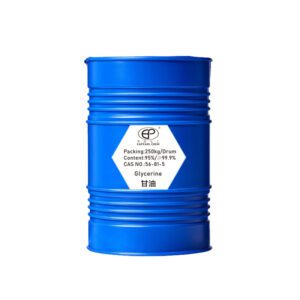I. Introduction to Diethylene Glycol
Have you ever wondered what gives certain products their dehydrating power? Meet diethylene glycol (DEG), a versatile chemical with many applications. With its distinctive chemical properties, DEG has paved its way as an indispensable agent in several industries. Let’s dive in!
II. Understanding Dehydration Processes
Dehydration is removing water or moisture from a substance. Have you ever left clothes out in the sun? That’s dehydration in action! But why is it significant? Many processes, from gas processing to pharmaceutical production, need dehydration to ensure efficiency and product quality.
III. Diethylene Glycol as a Dehydrating Agent: An Overview
Think of DEG as a sponge. But why choose DEG when there are other dehydrating agents? DEG often offers superior performance compared to its counterparts, though it has limitations.
IV. Industrial Applications of Diethylene Glycol in Dehydration
From keeping your air conditioning crisp to ensuring your medicine is top-notch, DEG plays a silent yet crucial role.
A. Gas and Petrochemical Industry
Imagine trying to refine gas with moisture; it’s inefficient. DEG ensures processes like these are smooth and effective.
B. Pharmaceuticals and Healthcare
Have you ever been prescribed liquid medicine? DEG ensures it’s moisture-free and potent.
C. Industrial and Chemical Processes
From the paint on your walls to the solvents in labs, DEG helps maintain quality.
D. Refrigeration and HVAC
That refreshing breeze from your air conditioner? DEG helps make it perfect.
E. Electronics and Semiconductor Industry
Your electronics need precision, and DEG ensures moisture runs smoothly.
F. Textile and Paper Industry
Soft textiles and crisp paper, all thanks to DEG’s dehydration prowess.
V. Mechanism of Dehydration Using Diethylene Glycol
Have you ever watched a sponge soak up water? DEG, being hygroscopic, does something similar but on a molecular level, pulling water from its surroundings.
VI. Safety Considerations and Handling of Diethylene Glycol
Like handling any chemical, caution is critical. Always follow guidelines and know potential risks.
VII. Environmental Impact of Diethylene Glycol
Every coin has two sides. While DEG is beneficial, responsible usage and disposal are crucial for Mother Earth.
VIII. Future Innovations and Research in Diethylene Glycol Dehydration
Science never stops! There’s ongoing research to make DEG dehydration even better.
IX. Case Studies: Real-life Examples of DEG Dehydration Applications
Real stories, tangible impact. Learn from industries reaping the benefits of DEG dehydration.
X. Summary and Conclusions
DEG, in essence, is a silent hero in many processes we take for granted. From industries to our daily lives, its dehydration capabilities are unparalleled.
FAQs
Q1. What is diethylene glycol?
A1. DEG is a versatile chemical agent primarily used for dehydration.
Q2. How does diethylene glycol compare to other dehydrating agents?
A2. It’s often superior but does have its limitations.
Q3. What are some common industries where diethylene glycol is used for dehydration?
A3. Gas processing, pharmaceuticals, electronics, textiles, and more.
Q4. Is diethylene glycol safe to handle?
A4. With proper safety measures, yes.
Q5. What are the environmental considerations for using diethylene glycol?
A5. Responsible usage and disposal are crucial to minimize environmental impact.








